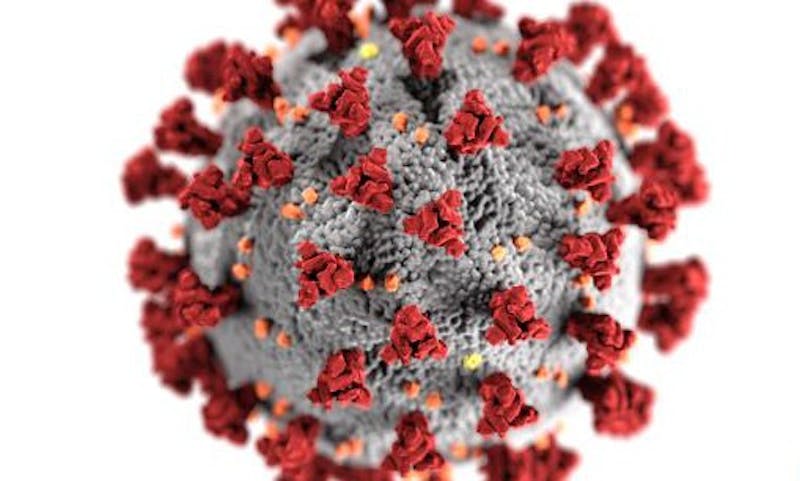
As the COVID-19 strand has spread across the US, Gov. Tony Evers held a briefing with state officials to discuss the state’s plans to prevent the spread.
Image By: Courtesy of Alissa Eckert, Dan Higgins/CDC
As the COVID-19 strand has spread across the US, Gov. Tony Evers held a briefing with state officials to discuss the state’s plans to prevent the spread.
Image By: Courtesy of Alissa Eckert, Dan Higgins/CDCWhile COVID-19 has begun to spread across the U.S., Wisconsin officials ruled out declaring a state of emergency for now as the state and UW-Madison prepare emergency plans.
Gov. Tony Evers held a briefing Wednesday with state officials and lawmakers explaining they won’t declare a state of emergency during the outbreak. Last time Wisconsin declared a state of emergency during a public health crisis was in 2009 during the H1N1 influenza outbreak.
Wisconsin has one confirmed case of COVID-19 in Dane County. The patient has since recovered and been released. Yet, six others are currently awaiting tests.
The Wisconsin Department of Health Services said 19 others have tested negative.
On Monday, the State Lab of Hygiene in Madison and the Milwaukee Health Department were cleared to begin testing patients who have similar symptoms to coronavirus.
Previously, tests had to be sent to the CDC in Atlanta. State health officer Jeanne Ayers said now Wisconsinites can get faster results as the state shifts strategies from containing the disease to now identifying and controlling the spread within the community.
“The risk to the public remains low in Wisconsin,” Ayers said to the Wisconsin State Journal. “[But] it’s especially important we have this lab capacity.”
According to a Trust for America’s Health study, Wisconsin is ranked highly for public health emergency preparedness. The measurement includes the state’s public health budget, flu vaccinations and quality of hospitals.
Other states affected by the outbreak, including Washington — where 10 deaths have occured — and Florida, have already declared states of emergency.
Under a state of emergency state funding could be mobilized to support local health departments for costs.
The Legislature also could act to give more funds to the DHS, but Assembly Speaker Robin Vos, R-Rochester, said he feels the department has enough resources to handle the situation.
“I think it's important for us to monitor the situation, which it sounds like they're doing a good job doing that, and for us to have the ability to react when we have facts and more information,” Vos said.
Still, officials said discussions are underway about plans for prisons, long-term care facilities and other crowded places. Lawmakers have also expressed concerns about vulnerable populations in their districts, including the incarcerated and elderly.
If coronavirus were to spread, working from home or closing schools might become a possibility. Wisconsin Department of Public Instruction spokesman Chris Bucher said school districts should already have plans in place from the 2009 H1N1 flu outbreak, and local officials would make decisions about school closures.
UW-Madison also planned emergency measures in case of an outbreak.
While the university’s email communications stressed the risk is extremely low and there’s no need for anxiety, UW-Madison has reiterated prevention requires collaboration and has taken other preventative steps.
UW-Madison has already suspended its study abroad programs in Italy, South Korea and China. Returning students are advised to self-quarantine for 14 days and monitor themselves for symptoms.
On campus, UHS recommended protective measures such as washing hands often, staying home when sick and covering coughs.
UW Health set up a hotline Wednesday offering information and answering questions. They are also updating their plans, which includes increasing access to video and telehealth services.